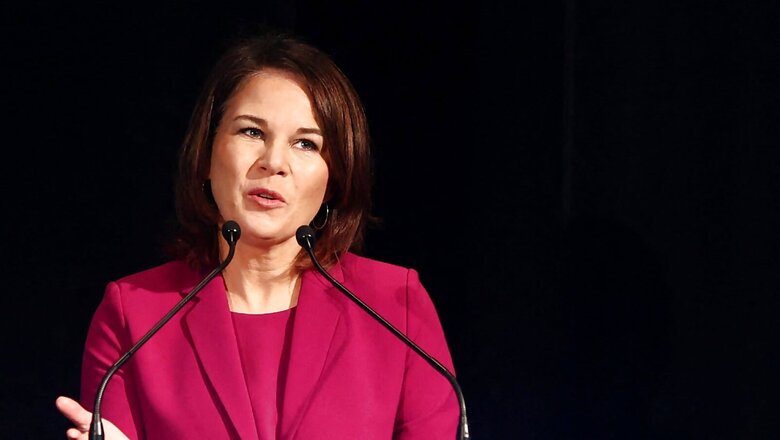
views
German foreign minister Annalena Baerbock earlier this week urged members of the European Union to remain united on issues and said decisions cannot be vetoed by individual member states.
“We must be capable of acting efficiently and swiftly. I strongly believe that we have to get better in terms of the speed of our decision-making in the European Union, especially when it comes to foreign policy matters,” Baerbock said.
“We sometimes have situations where we as the European Union want to act, but unfortunately are not even capable of drafting a press release because we don’t agree on 100% of the wording. Therefore, I suggest that we make better use of the possibilities the EU treaties give us already today,” Baerbock further added.
Her comments came during her visit to Lisbon where she met her Portuguese counterpart João Cravinho and attended the Portuguese Ambassador Conference.
What is EU’s Qualified Majority Voting System?
Baerbock then suggested that EU members make use of the qualified majority voting in a more efficient manner.
Qualified majority voting is the most common voting method used by the Council of the European Union. Two conditions have to be simultaneously met to reach a qualified majority.
If 15 out of 27 member states vote in favour, that is 55% of EU, and the proposal is supported by member states representing at least 65% of the total EU population, a qualified majority is met.
Baerbock said that there are concerns regarding the qualified majority voting system, because despite being a grouping of nations, individual member states can also have diverse views on a particular issue.
“We recently set up a training mission for Ukrainian soldiers, a decision that required unanimity. After a long discussion, Hungary decided on a “constructive abstention”, allowing the others to go ahead. We want to build on such pragmatic solutions so that, as the EU, we can live up to our responsibility as a strong global actor,” the German foreign minister said.
Baerbock’s comments come in the wake of the ongoing war in Ukraine and the Covid-19 outbreak in China. She said the EU needed a united response to China’s unprecedented wave of infections.
Baerbock said constructive abstentions or the passerelle clause that is already provided for in the treaties, or the qualified majority voting in special, specifically defined policy fields such as climate-related questions, sanctions or human rights must be used to reinforce that the EU has a larger role to play in global affairs.
However, Poland’s Law and Justice Party secretary general, Krzysztof Sobolewski, disagreed and said as long as the party is in power they will ensure there is no departure from the veto principle in the EU.
“The Polish government will not agree to any changes regarding EU law that would reduce the powers of member states when it comes to the veto,” the Law and Justice Party spokesperson Piotr Mueller said.
Hungary also said that Baerbock’s suggestions, if applied, can threaten the bloc’s effectiveness and unity.
(with inputs from Hungary Today, Reuters and the First News)
Read all the Latest News here




















Comments
0 comment